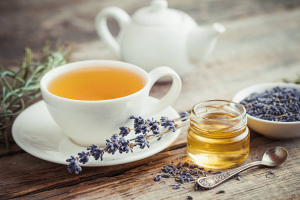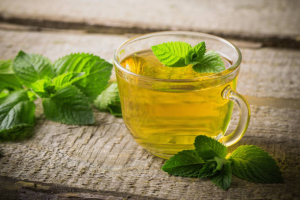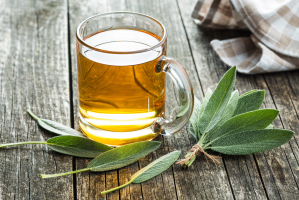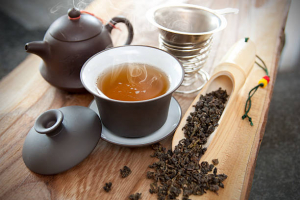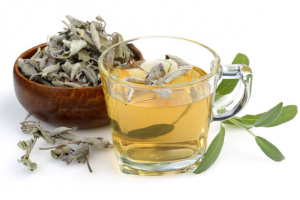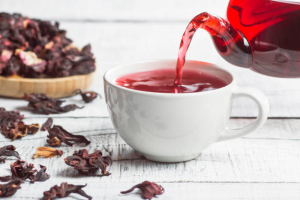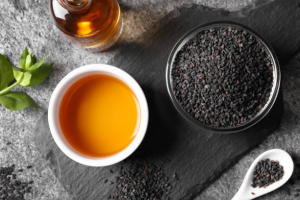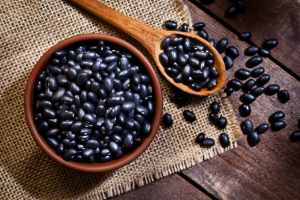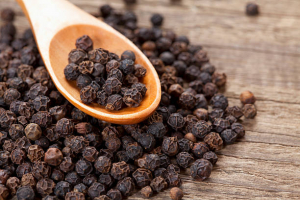Top 10 Health Benefits of Black Tea
Aside from water, black tea is one of the most popular beverages in the world. It is derived from the Camellia sinensis plant and is frequently combined with ... read more...other plants to create diverse tastes, such as Earl Grey or chai. It has a stronger flavor and contains more caffeine than other teas, but not as much as coffee. Because it includes antioxidants and chemicals that may help decrease inflammation in the body, black tea has a number of health advantages. Read on for more information.
-
Antioxidants are recognized to have several health advantages. Consuming them can aid in the removal of free radicals and the reduction of cell damage in the body. This, in turn, may help reduce the risk of chronic illness. Polyphenols are antioxidants present in a variety of foods and beverages, including black tea. The major sources of antioxidants in black tea are polyphenol groups such as catechins, theaflavins, and thearubigins, which may enhance general health.
In fact, one rat research looked at theaflavins and thearubigins in black tea and the risk of diabetes, obesity, and high cholesterol. Theaflavins and thearubigins were shown to lower cholesterol and blood sugar levels. An earlier study looked at the effect of oolong tea catechins on body weight. It discovered that people who received 690 mg of catechins from tea on a daily basis for 12 weeks lost body fat. While antioxidants are found in many supplements, the best method to take them is through food and beverages. In fact, some studies suggest that taking antioxidant supplements may be harmful to your health.
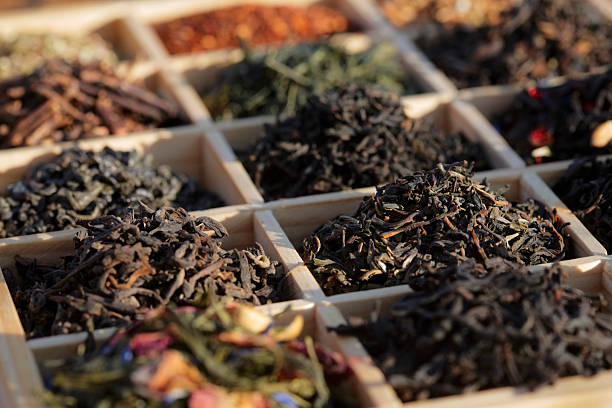
Have antioxidant properties 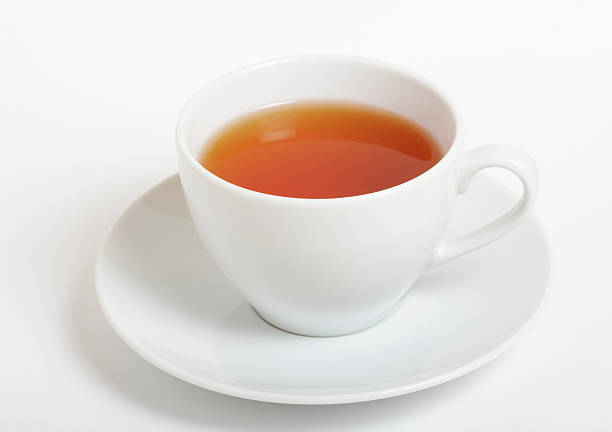
Have antioxidant properties -
Flavonoids, another kind of antioxidant found in black tea, are beneficial to heart health. Flavonoids can also be found in vegetables, fruits, red wine, and dark chocolate, in addition to tea. Regular consumption may help lower numerous risk factors for heart disease, including as high blood pressure, high cholesterol, raised triglyceride levels, and obesity. According to one big study, for every cup of tea taken daily, there is a 4% reduced chance of death from heart disease, a 2% lower risk of heart attack and other cardiovascular events, a 4% lower risk of stroke, and a 1.5 percent lower risk of mortality from all causes.
Another big prospective research discovered that persons who drank tea on a regular basis had an 8% lower risk of heart disease and a 10% lower risk of serious cardiac events, such as heart attack, as compared to those who had not taken tea in the preceding 12 months. Including black tea in your daily routine is a simple approach to increase your antioxidant intake and maybe lower your risk of future health concerns.

May boost heart health 
May boost heart health -
Two lipoproteins in the body carry cholesterol throughout the body. The first is low-density lipoprotein (LDL), while the second is high-density lipoprotein (HDL) (HDL). Because it delivers cholesterol to cells throughout the body, LDL is known as the "bad" lipoprotein. Meanwhile, HDL is known as the "good" lipoprotein because it transfers cholesterol from your cells to your liver, where it is eliminated from the bloodstream. When the body has too much LDL, it can pile up in the arteries and produce waxy deposits known as plaques. This can result in issues such as heart failure or stroke.
Fortunately, some research suggests that drinking tea may help lower LDL cholesterol. According to one assessment of well-designed research, drinking black tea significantly lowered LDL cholesterol by 4.64mg/dL. This impact was more significant in persons who had a higher risk of cardiovascular disease. In another well-designed trial, however, consuming five cups of black tea daily had no effect on total, HDL, or LDL cholesterol levels in adults with borderline-high cholesterol when compared to a placebo.

May lower “bad” LDL cholesterol 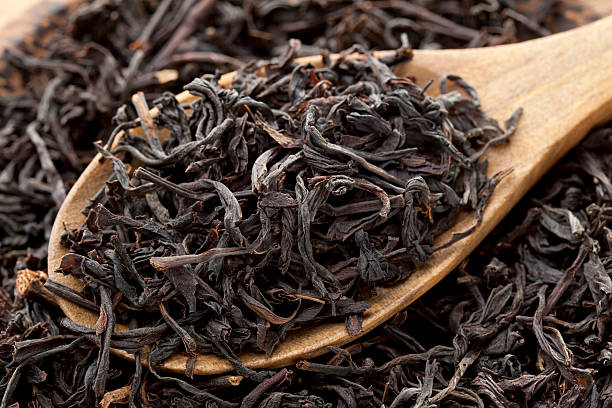
May lower “bad” LDL cholesterol -
According to research, the type of bacteria in your stomach may have a big impact on your health. Some bacteria in your stomach are favorable to your health, while others are not. Indeed, some research suggests that the kind of bacteria in your gut may play a crucial role in lowering your risk of certain health issues such as inflammatory bowel disease, type 2 diabetes, cardiovascular disease, obesity, and even cancer. Black tea polyphenols may help maintain a healthy gut by encouraging the growth of beneficial bacteria while suppressing the growth of harmful bacteria.
Furthermore, black tea may possess antibacterial characteristics that eliminate dangerous chemicals and boost gut flora and immunity by assisting in the healing of the digestive tract lining. However, further study is needed before drawing firm conclusions about the effect of black tea on immunological function.

May improve gut health 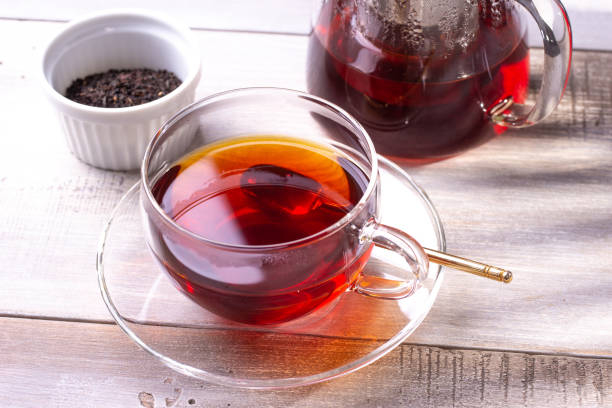
May improve gut health -
High blood pressure increases your chances of suffering from heart and kidney failure, stroke, eyesight loss, and heart attack. Fortunately, dietary and lifestyle adjustments can help reduce blood pressure. One well-designed study examined the impact of tea consumption on blood pressure in patients with hypertension or high blood pressure. In persons with hypertension, regular tea consumption reduced systolic blood pressure by 4.81 mm Hg and diastolic blood pressure by 1.98 mm Hg. Those who drank tea on a regular basis for more than three months had much bigger reductions in both systolic and diastolic blood pressure.
Another study that looked at the effects of black tea on blood pressure discovered that drinking black tea significantly lowered both systolic and diastolic blood pressure when compared to a control. The benefits were stronger in men and those who drank black tea for more than seven days. Those with high blood pressure may benefit from drinking black tea on a daily basis, as well as embracing other lifestyle changes such as stress management measures.

May help reduce blood pressure 
May help reduce blood pressure -
When a blood artery in the brain becomes blocked or ruptures, a stroke occurs. It is the world's second-biggest cause of death. Fortunately, 80 percent of strokes may be avoided. Managing your nutrition, physical exercise, blood pressure, and avoiding smoking, for example, can all help minimize your risk of stroke. Interestingly, research has discovered that drinking black tea may help lessen the incidence of stroke. One prospective research of 365,682 persons looked examined the link between tea and coffee consumption and the incidence of stroke, dementia, and post-stroke dementia.
Following participants for almost 11 years, the study discovered that individuals who drank at least two cups of tea per day had a 16% reduced risk of ischemic stroke than those who did not drink tea. Another study looked at genetic determinants of tea intake to see if there was a link between drinking tea and a higher risk of stroke. According to the study, if you are genetically predisposed to consume more tea each day, you have a decreased chance of stroke.

May help reduce the risk of stroke 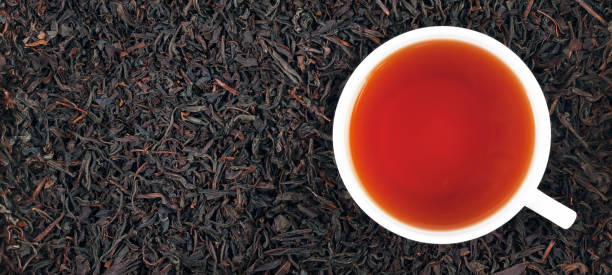
May help reduce the risk of stroke -
Elevated blood sugar levels can put you at risk for health problems including type 2 diabetes, obesity, cardiovascular disease, renal failure, and depression. Sugar consumption, particularly from sweetened beverages, has been found to raise blood sugar levels and the risk of type 2 diabetes. When you eat sugar, your pancreas releases a hormone called insulin. Insulin permits sugar to enter cells, including muscle and liver cells, where it is stored as glycogen or energy. When the body requires energy, a separate hormone, glucagon, is produced to aid in the breakdown of glycogen and the release of energy. If you ingest more sugar than your body has glycogen storage room for, the extra sugar is stored as fat.
According to research, drinking black tea may help reduce your blood sugar after a meal or snack, commonly known as postprandial glucose. One modest but well-designed study investigated the effect of drinking black tea on blood sugar levels after consuming a high-sugar beverage. Twenty-four patients with and without pre-diabetes were given a high-sugar beverage coupled with a low- or high-dose of black tea or a placebo. Those who had a low- or high dose of black tea had considerably lower postprandial (after-meal) blood sugar levels than those who consumed a placebo.

May lower blood sugar levels 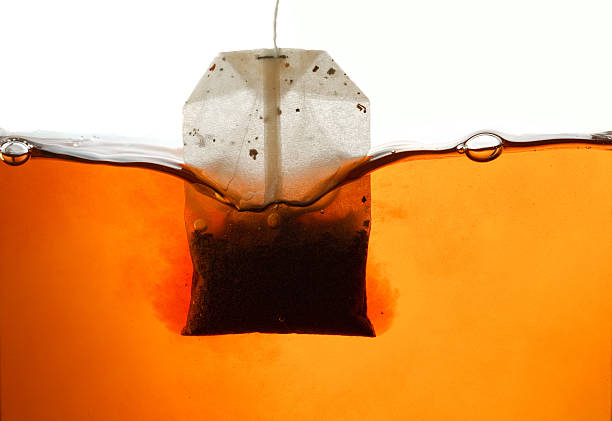
May lower blood sugar levels -
There are over 100 distinct forms of cancer, some of which are incurable. Nonetheless, the polyphenols included in black tea may aid in the prevention of some forms of cancer and the promotion of cancer cell death. According to one comprehensive assessment of data on the impact of tea on cancer risk, drinking tea is related to a decreased incidence of mouth cancer. According to the authors, tea may also be connected with a decreased risk of other forms of cancer, such as gastrointestinal cancer, breast cancer, ovarian cancer, lung cancer, and thyroid cancer, but additional well-designed trials are needed to know for sure.
Another study looked at the influence of green and black tea consumption on the risk of endometrial cancer. The study discovered that individuals who consumed the greenest tea had a 22% lower risk of endometrial cancer. Furthermore, every additional cup of green tea consumed each day was related to an 11 percent lower chance of getting endometrial cancer. However, no significant link was discovered between black tea drinking and endometrial cancer risk. Although black tea should not be regarded as an alternative cancer treatment, some study has shown that it may help lessen the risk of some forms of cancer.
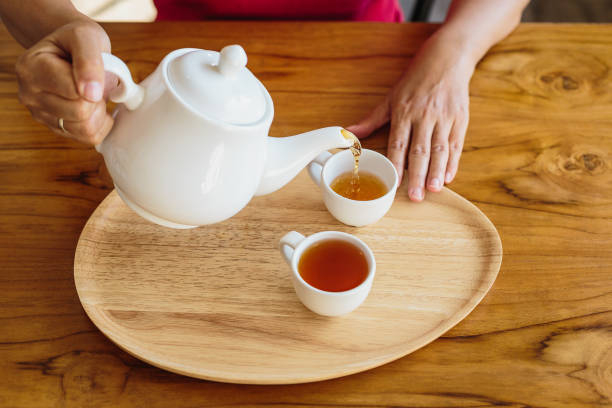
May help reduce the risk of cancer 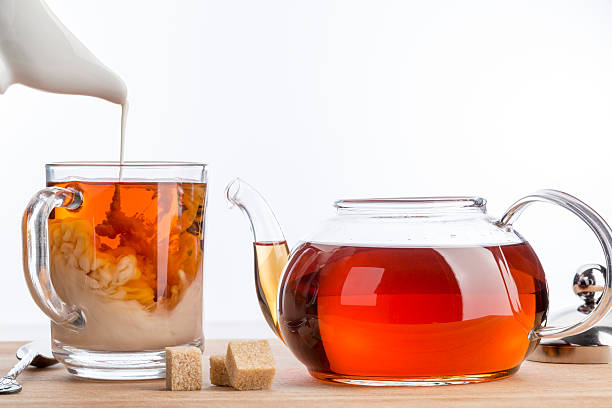
May help reduce the risk of cancer -
Black tea includes caffeine as well as L-theanine, an amino acid that can boost alertness and attention. L-theanine boosts alpha activity in the brain, which leads to relaxation and improved attention. Because of the effects of L-theanine on the brain, studies have indicated that drinks containing L-theanine and caffeine had the greatest influence on attention. This might explain why, as compared to other caffeinated beverages like coffee, many people report having more consistent energy after drinking tea.
Participants in one short research examining the influence of black tea on cognitive performance drank either 250ml of black tea or water. Following that, they were tested on executive function, sustained attention, memory, and mathematical computations. Those who drank the black tea performed much faster on cognitive activities, had better memory and made fewer mistakes. According to the authors, even a tiny amount of black tea can increase cognitive processing. This makes black tea an excellent beverage for increasing energy and attention without consuming a lot of caffeine.

May improve focus 
May improve focus -
Although most people associate caffeine with increased performance, black tea provides a comparable (though slightly weaker) impact. A cup of black tea has 47 mg of caffeine, but an average cup of coffee contains 95 mg. Black tea offers a variety of performance-enhancing properties, owing mostly to its caffeine concentration.
First, as evidenced by systematic studies, caffeine use can boost strength and physical endurance. There have also been studies that demonstrate caffeine levels as low as 100 mg have favorable benefits by increasing the 'time to fatigue' during exercise. Although coffee is the best choice for performance and exercise, a cup (or two) of black tea may have some advantages.

Improve physical performance 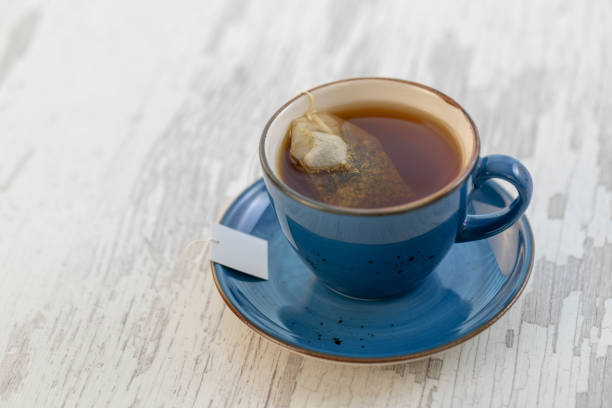
Improve physical performance















